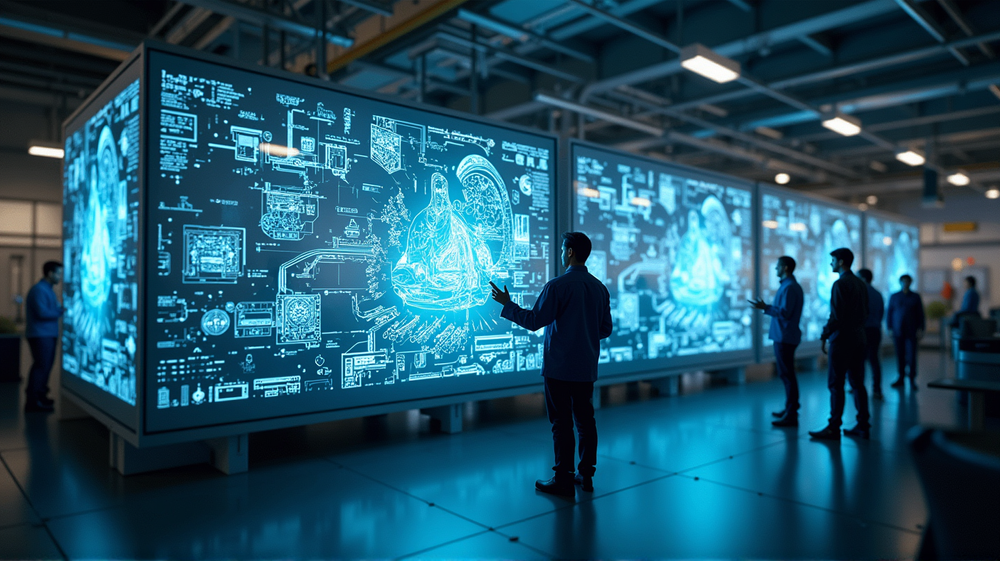Revolutionizing Manufacturing: AI Paves the Way for Innovation
Manufacturing is undergoing a technological renaissance, driven by artificial intelligence (AI) which enhances factory operations remarkably. By modernizing existing tech like digital twins, cloud systems, and the industrial internet of things (IIoT), AI has allowed factories to shift from mere problem-solving to an era of seamless optimization. As stated in MIT Technology Review, the transformation is unprecedented.
The Power of Digital Twins
The concept of digital twins has been pivotal in this transformation. These virtual models replicate real-world equipment and processes, offering a sandbox for workers to test and optimize without disrupting actual operations. For instance, manufacturing lines can simulate environments to streamline production, thus increasing efficiency and reducing downtime.
Indranil Sircar of Microsoft highlights that AI-backed digital twins allow for real-time views of production workflows, representing a significant leap from isolated machine monitoring to comprehensive insights.
Fighting Downtime with Precision
Downtime in manufacturing—where production halts, leading to costly delays—remains a significant challenge. With the aid of AI and digital twins, factories can now tackle micro-stops and measure quality metrics with unmatched precision. Jon Sobel, CEO of Sight Machine, highlights this innovation’s potential to save millions in productivity that was once lost.
The Surge in AI Deployment
In recent years, AI integration has surged, with up to 50% of manufacturers employing AI on some level, according to industry reports. This marks a notable rise from the previous year’s 35%. Larger manufacturers with revenues exceeding $10 billion are at the forefront, with a staggering 77% already utilizing AI.
Manufacturing: An Unexpected Leader in AI
Sobel notes that while industries have doubted manufacturing’s digital capabilities, the sector is uniquely positioned to lead in AI. The data-rich environment within manufacturing provides fertile ground for AI deployment, paving the way for incredible leaps in productivity and innovation.
Conclusion
As AI continues to permeate industrial processes, the future looks promising for heightened efficiency and productivity in manufacturing. The integration of AI and IIoT technologies represents only the beginning of a revolutionary journey in industrial advancement.
Join industry leaders in embracing this transformation and discover how AI can redefine the landscape of manufacturing for the better.




